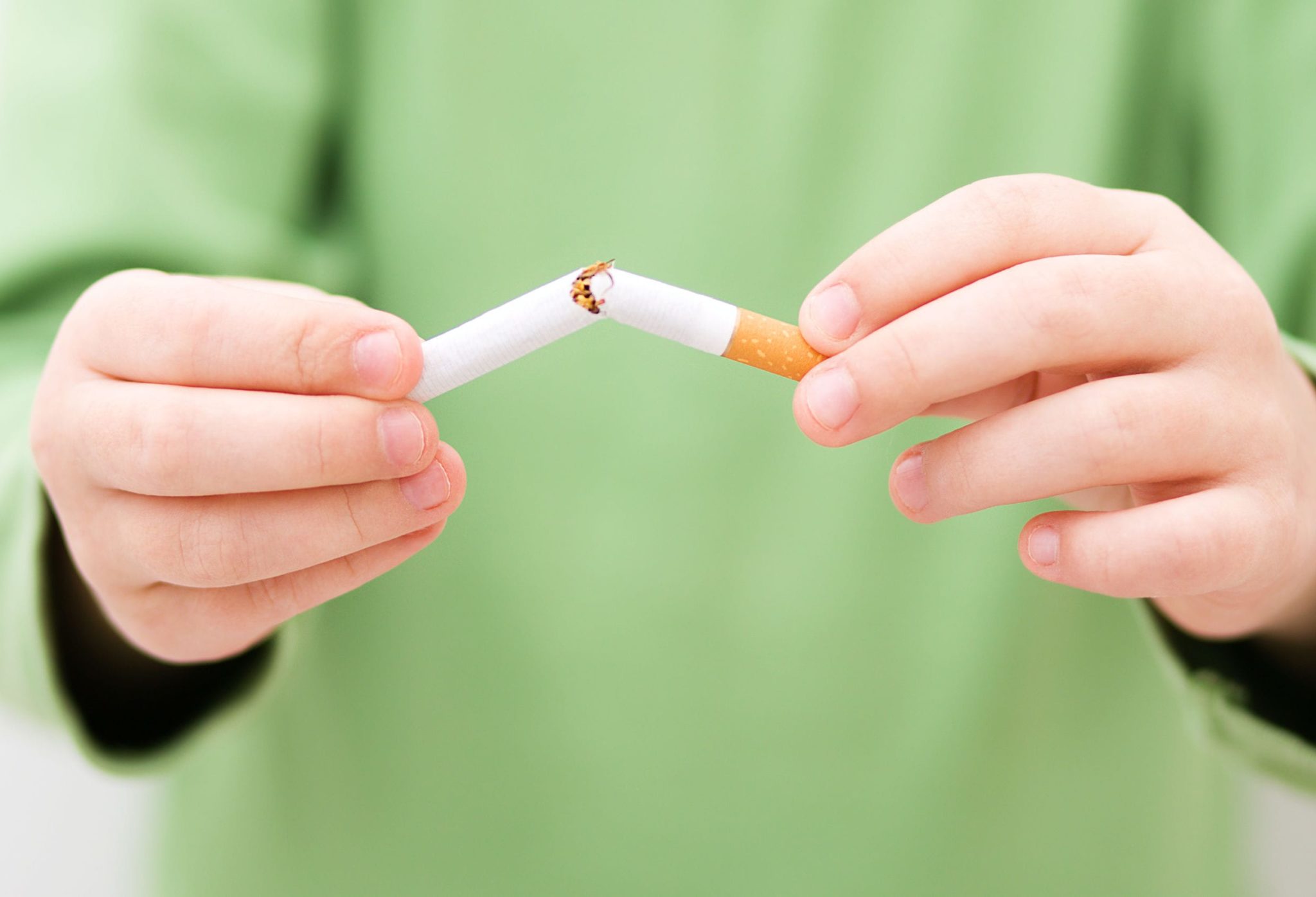Risk Factor: Smoking
Symptoms
Bad breath that won’t go away, swollen or bleeding gums, painful chewing, over sensitivity to hot or cold food/drink, loose teeth, receding gum line, color changes in the gums or tissues of the mouth

Smoking can do significant damage to your gums, mouth, and teeth. Smoking or chewing tobacco is the cause of 80-90% of oral cancers, but it puts your mouth at risk for more than just oral cancer.
Smoking heightens your risk for the following: periodontal disease, bad breath, tooth discoloration, an increased buildup of dental plaque, and delayed healing following tooth extraction, leukoplakia, periodontal treatment, or oral surgery.
Periodontal disease is a bacterial infection in the gums, and more than half of smokers who have this disease have it due to smoking. The disease destroys soft tissue and bone that anchor your teeth to your jaw bones. Smoking accelerates gum loss, creating pockets that can make teeth loose and even fall out. Bacteria grow in the dental plaque that forms in the pockets and spaces around your teeth. Increased bacterial dental plaque from smoking puts you at a greater risk of periodontal disease and the adverse effects that come with this disease.
Cosmetically, the teeth of smokers have an overall less attractive appearance. This is due to the steady buildup of plaque and tartar. Smoking stains the teeth and causes bad breath. If you drink coffee and soda, that will also contribute to teeth staining. In some smokers, a condition called black hairy tongue may develop, which can turn the tongue black, yellow, brown, or green and give the appearance of being hairy. Smokers may also lose the sensation of taste and smell.
The best way to avoid these negative oral health effects is, of course, to quit altogether, though tobacco addiction is difficult to break.
Here are some tips to help you quit:
- Make a plan to quit with a program that works for you. You may call a quit line like 1-800-QUIT-NOW or 1-877-44U-QUIT to get started.
- Avoid smoking triggers and throw away all of your smoking paraphernalia.
- Stay busy to keep your mind off smoking, and spend time with non-smoking friends or at your favorite smoke-free restaurant.
- Avoid caffeine and drink lots of water.
- Stay positive. Quitting smoking is difficult. Try to pay attention to being smoke-free
- Ask for support from friends and family to get you through rough spots.
